This article was co-authored by Pippa Elliott, MRCVS. Dr. Elliott, BVMS, MRCVS is a veterinarian with over 30 years of experience in veterinary surgery and companion animal practice. She graduated from the University of Glasgow in 1987 with a degree in veterinary medicine and surgery. She has worked at the same animal clinic in her hometown for over 20 years.
There are 11 references cited in this article, which can be found at the bottom of the page.
wikiHow marks an article as reader-approved once it receives enough positive feedback. In this case, 88% of readers who voted found the article helpful, earning it our reader-approved status.
This article has been viewed 98,837 times.
Respiratory problems, such as colds and pneumonia, are common in guinea pigs. Unfortunately, minor respiratory problems, like a cough or sneeze, can make a guinea pig extremely sick within a matter of days.[1] If your guinea pig has a respiratory problem, early treatment by your veterinarian will give him the best chance of getting better.
Steps
Detecting Respiratory Problems in Your Guinea Pig
-
1Determine if your guinea pig has trouble breathing. When your guinea pig is healthy, his breathing will be quiet and easy. However, respiratory problems can make it hard for him to breathe. Your guinea pig may start wheezing. In addition, you may hear clicking or rattling noises when he breathes.
-
2Look at your guinea pig’s eyes and nose. A respiratory problem can cause your guinea pig’s eyes and nose to produce discharge. If the discharge is green or yellow, your guinea pig could have a bacterial respiratory infection. A respiratory infection could also cause your guinea pig’s conjunctiva, the inner part of your guinea pig’s eyelids, to become red.
- Allergies, another type of respiratory problem, can make your guinea pig’s nose red and sore from a lot of itching and scratching.[2]
Advertisement -
3Take note of your guinea pig’s appetite. A respiratory problem can make your guinea pig feel pretty sick and not in the mood to eat. He may eat less, or not at all.[3] When you feed him, observe how much he eats.
- With a reduced appetite, your guinea pig will lose weight.
- A lack of vitamin C is one possible cause of respiratory problems in guinea pigs.[4] If your guinea pig is not eating much because he feels sick, he may not be getting enough vitamin C, which could make him feel even worse.
-
4Have your vet diagnose your guinea pig. Although your guinea pig may have obvious symptoms of a respiratory problem, your vet will need to determine the exact cause of the illness and how serious it is. To do this, they will perform a physical exam that will include listening to your guinea pig’s lungs. Your vet will also take samples (e.g., nasal swab, discharge from the eyes or nose) to identify the specific bacteria causing the respiratory infection.
- Chest x-rays can also help your vet diagnose your guinea pig’s respiratory problem. Chest x-rays will show whether your guinea pig has pneumonia.[5]
- Dental disease can cause respiratory problems in guinea pig because the roots of the cheek teeth (premolars and molars) are so close to the nasal passages. If your guinea pig has dental disease, skull x-rays will help your vet see the extent of the disease.
Getting Veterinary Treatment for Your Guinea Pig
-
1Treat your guinea pig immediately. If left untreated, your guinea pig’s respiratory problem could make him extremely sick. For example, if he has a cold, it could quickly progress to pneumonia, which may be difficult for him to recover from. The sooner you get him treated, the better his chances of a good recovery.
-
2Hospitalize your guinea pig, if necessary. If your guinea pig is extremely sick (e.g., very labored breathing, inability to eat, very weak), your vet will likely want to hospitalize him for intense treatment. In-hospital treatments include assisted feeding, injectable medications, and extra oxygen. Your vet will want to hospitalize your guinea pig until he is strong and stable enough for at-home care.
- If your guinea pig has severe breathing troubles, your vet may also humidify the oxygen your guinea pig is receiving.
- Your vet may give your guinea pig an oral or injectable multivitamin in the hospital if he is extremely weak.[6]
- Injectable medications usually work faster than oral medications.
-
3Have your vet correct your guinea pig’s dental problems. If dental disease caused your guinea pig’s respiratory problems, then your vet will need to treat it at the hospital. Your vet will need to anesthetize him and use specialized dental tools to work on his teeth.[7] After surgery, your vet may prescribe a pain medication for your guinea pig.
-
4Give your guinea pig antibiotics. Two types of bacteria — Bordetella bronchiseptica and Streptococcus pneumoniae — are the primary causes of respiratory infections in guinea pigs.[8] Your vet will use diagnostic test results to select which antibiotic will effectively treat your guinea pig’s respiratory problem. Follow your vet’s instructions carefully to ensure all the bacteria is killed.
- If the antibiotic comes in liquid form, you can use a medicine dropper to put the prescribed number of drops into the corner of your guinea pig’s mouth. If he resists that, you could place the drops on his favorite food.[9]
- Contact your vet if you are having trouble giving your guinea pig the antibiotics.
-
5Monitor your guinea pig. Some antibiotics can cause diarrhea in guinea pigs by killing the healthy bacteria in the digestive tract.[10] If your guinea pig develops diarrhea from the antibiotics, stop giving them immediately and contact your vet. Your guinea pig will probably need to be treated with a different antibiotic.
Preventing Future Respiratory Problems
-
1Clean your guinea pig’s cage regularly. Once your guinea pig has been treated for a respiratory problem, you won’t want him to get another one. Keeping his cage clean is one of the best ways to prevent a future respiratory problem. Clean his cage twice a week.
- To give your guinea pig’s cage a thorough cleaning, remove all cage accessories and discard the bedding. Wash the cage with hot, soapy water. Rinse the cage and let it dry completely.
- Each day, remove leftover food, feces, and dirty bedding.
-
2Use proper bedding in your guinea pig’s cage. Proper bedding can also prevent respiratory infections in guinea pigs. Dust-free bedding will not irritate your guinea pig’s nose. Examples of dust-free beddings are CareFRESH® and fleece.
-
3Keep your guinea pig’s cage well ventilated. Adequate air circulation is important in preventing respiratory problems in guinea pigs. A wire cage would provide more ventilation than a solid glass cage. Make sure the cage is not in the direct path of a vent or draft — a constant draft of cool air could make your guinea pig sick.[13]
-
4Do not overcrowd your guinea pig’s cage. If you have multiple guinea pigs, they should be in a cage large enough to house all of them comfortably. If the cage is too small, your guinea pigs could develop respiratory infections from the stress of overcrowding. The stress would weaken their immune systems and make them susceptible to infection.
- If you have 2 guinea pigs, their cage should be at least 30 inches x 50 inches (76 cm x 127 cm).[14]
-
5Do not house rabbits and guinea pigs together. Rabbits can harbor Bordatella in their bodies and pass it on to guinea pigs. In addition, a rabbit can bully a guinea pig, causing the guinea pig stress if it cannot find a safe place to get away. To prevent a respiratory infection, house your rabbits and guinea pigs in different cages.[15]
- The stress from bullying could cause a respiratory problem by weakening your guinea pig’s immune system.
-
6Add vitamin C to your guinea pig’s diet. Adequate amounts of vitamin C are essential to preventing respiratory problems in guinea pigs. Guinea pigs cannot produce vitamin C in their bodies, so they must get this nutrient from food. Examples of vitamin C-rich foods are broccoli, parsley, green peppers, and mustard greens.[16]
- Vitamin C dietary supplements are also available. Talk to your vet before giving your guinea pig a supplement.
- Your guinea pig should receive 50 mg of vitamin C per day.[17] Your vet can help you ensure that your guinea pig receives enough daily vitamin C.
Warnings
- A guinea pig may get sick again after being treated for a respiratory problem.⧼thumbs_response⧽
- For unknown reasons, some guinea pigs die despite getting treatment for a respiratory problem.[18]⧼thumbs_response⧽
References
- ↑ http://azeah.com/guinea-pigs/respiratory-infections
- ↑ http://www.netvet.co.uk/guinea%20pigs/respiratory-problems.htm
- ↑ http://www.petmd.com/exotic/conditions/respiratory/c_ex_gp_bordetella_bronchisepta_infection#
- ↑ http://azeah.com/guinea-pigs/respiratory-infections
- ↑ http://www.merckvetmanual.com/pethealth/exotic_pets/guinea_pigs/disorders_and_diseases_of_guinea_pigs.html
- ↑ http://www.petmd.com/exotic/conditions/respiratory/c_ex_gp_bordetella_bronchisepta_infection?page=2
- ↑ http://www.mypetsdentist.com/guinea-pig-dental-care.pml
- ↑ https://www.ncbi.nlm.nih.gov/pmc/articles/PMC7150066/
- ↑ http://www.netvet.co.uk/guinea%20pigs/respiratory-problems.htm
- ↑ http://www.merckvetmanual.com/pethealth/exotic_pets/guinea_pigs/disorders_and_diseases_of_guinea_pigs.html
- ↑ http://www.guinealynx.info/bedding_avoid.html#cedar
- ↑ http://www.humanesociety.org/animals/guinea_pigs/tips/guinea_pig_housing.html
- ↑ http://www.humanesociety.org/animals/guinea_pigs/tips/guinea_pig_housing.html
- ↑ http://www.humanesociety.org/animals/guinea_pigs/tips/guinea_pig_housing.html
- ↑ http://www.rspca.org.uk/adviceandwelfare/pets/rabbits/company/rabbitsandguineapigs
- ↑ http://www.peteducation.com/article.cfm?c=18+1800&aid=620
- ↑ http://azeah.com/guinea-pigs/respiratory-infections
- ↑ http://azeah.com/guinea-pigs/respiratory-infections
About This Article
While respiratory problems are common in guinea pigs, it’s important that you get it treated quickly since they can make your guinea pig very sick quite quickly. If your guinea pig has trouble breathing, is wheezing, has green or yellow discharge in its eyes or nose, or has been eating less, it may have a respiratory illness. Take it to your vet to be diagnosed and treated. At the vet, they’ll likely perform a physical exam and listen to its lungs. Depending on the illness, they may decide to give your guinea pig antibiotics to treat the problem. To learn how to prevent respiratory problems in the future, read more from our Veterinary co-author!

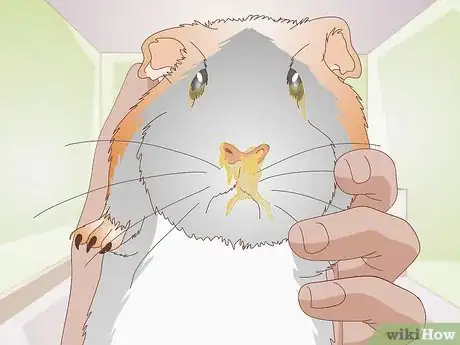
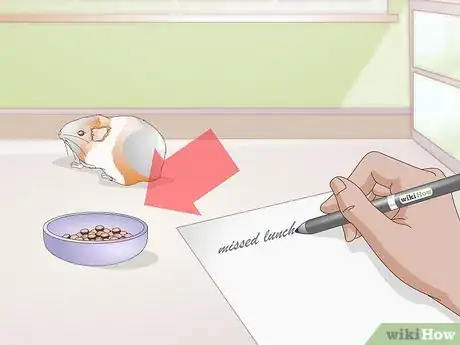
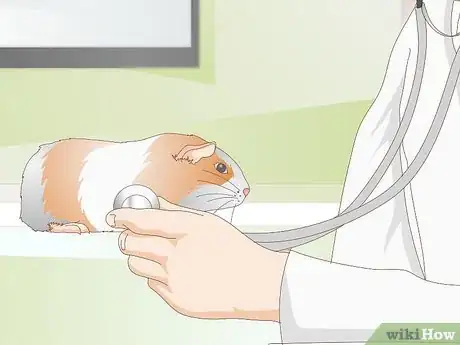
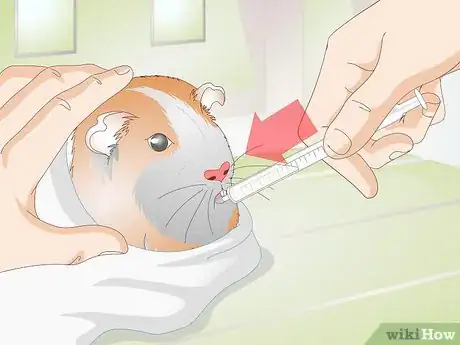
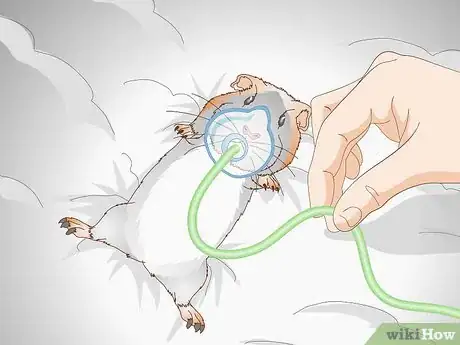
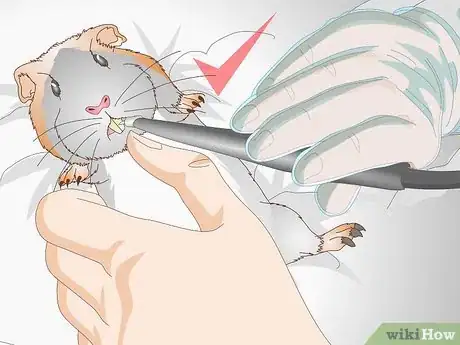
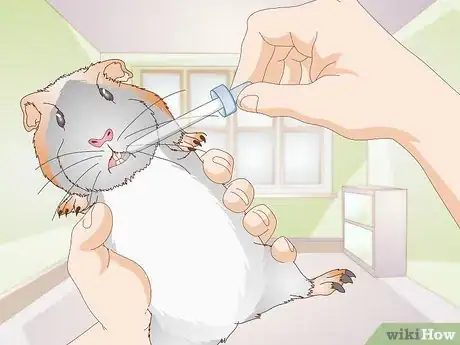
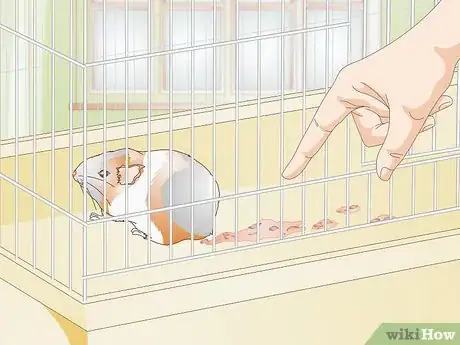

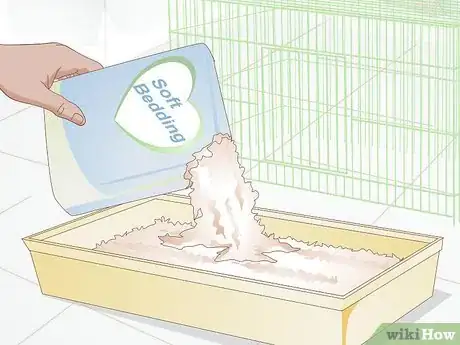
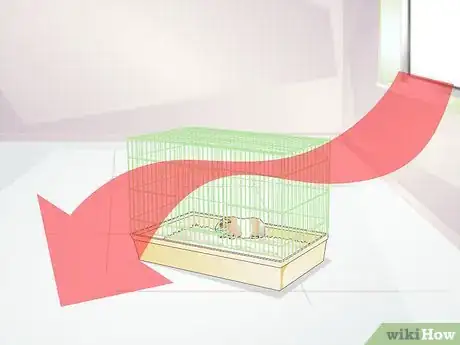
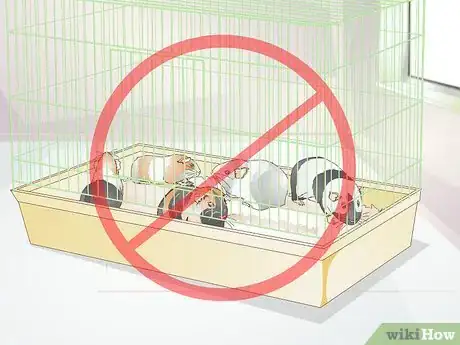
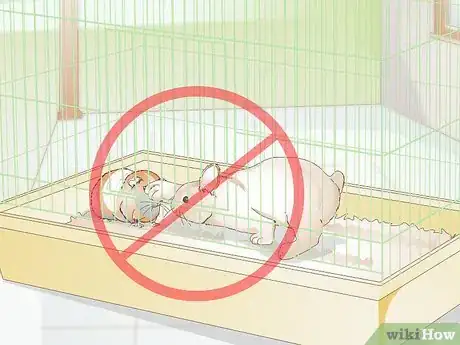






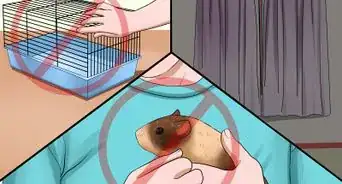




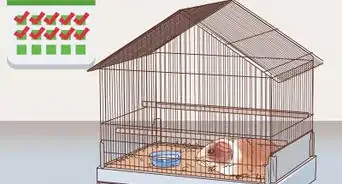

















































Medical Disclaimer
The content of this article is not intended to be a substitute for professional medical advice, examination, diagnosis, or treatment. You should always contact your doctor or other qualified healthcare professional before starting, changing, or stopping any kind of health treatment.
Read More...